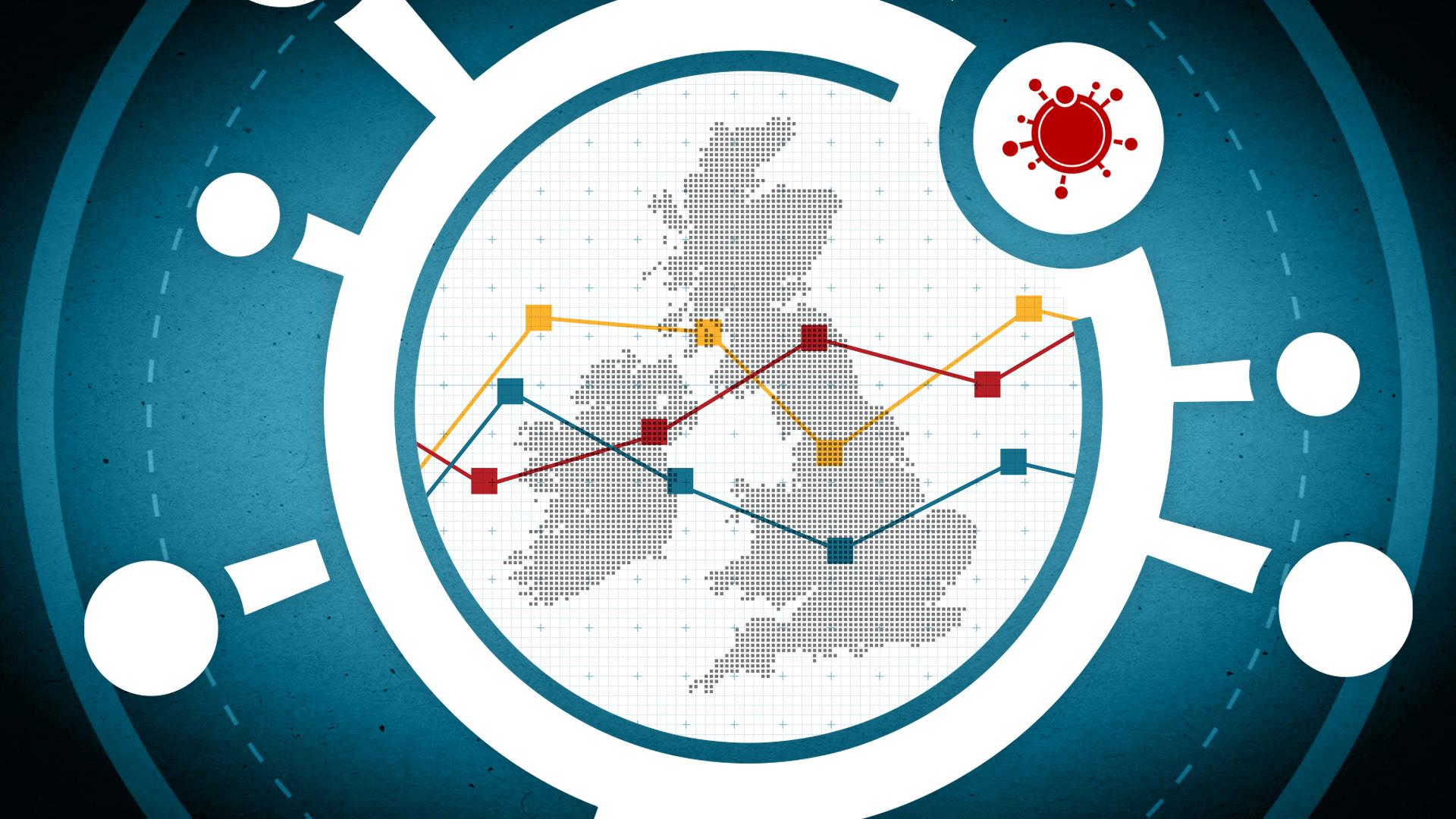Covid-19: NI isolation rules change amid test shortage
- Published
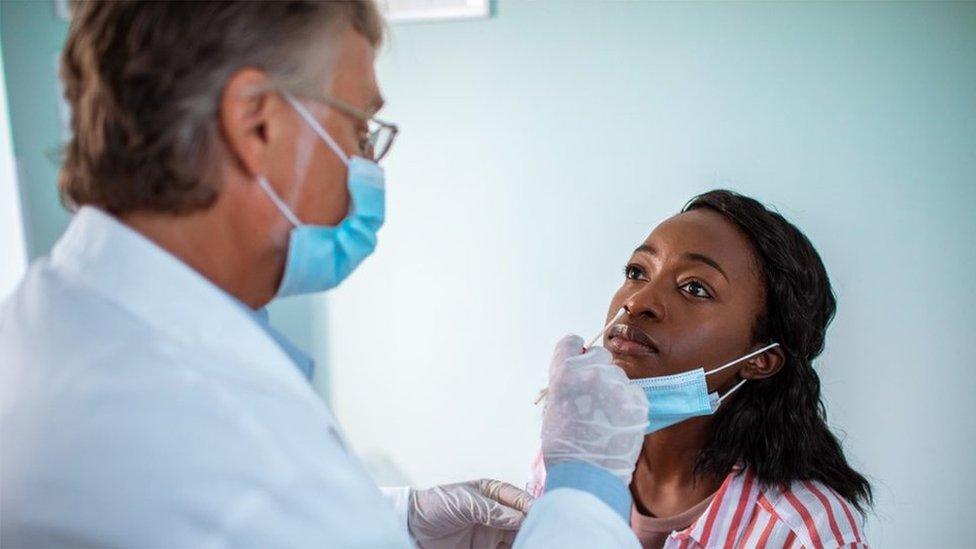
Those who receive a positive lateral flow test should assume that they have Covid-19, the Department of Health said
People in Northern Ireland who get a positive lateral flow test no longer need a PCR test to confirm that result.
The Department of Health has said those who receive a positive lateral flow test should assume that they have Covid-19 and self-isolate immediately.
It comes amid business closures and health service pressures due to staff absences caused by self-isolation.
Pharmacists have warned the demand for lateral flow tests in Northern Ireland is outstripping supply.
Northern Ireland has reported 12% of its total number of positive Covid-19 cases since in the start of the pandemic in just the last seven days.
The rate of transmission, driven by the Omicron surge, has been described as being at an "extraordinary level" by Northern Ireland's chief scientific adviser Prof Ian Young.
On Wednesday, the Department of Health reported three more Covid-19-related deaths and a further 7,133 cases of coronavirus.
What has changed with self-isolation?
The Department of Health's decision to change Covid testing rules follows the same move announced for England earlier on Wednesday.
The current isolation period lasts seven days, with a negative lateral flow test needed on day six and seven.
The Department of Health said:
The removal of confirmatory PCR testing was a temporary measure in response to the very high prevalence of Covid in Northern Ireland
A positive lateral flow test was a "positive indicator of current Covid-19 infection" and should be reported on the gov.uk website, external so close contacts can be informed through contact tracing
After receiving a positive result, people should continue to isolate until they get two negative lateral flow tests taken 24 hours apart, or they have completed 10 full days of isolation - whichever is earlier
Fully-vaccinated people identified as close contacts are now advised to take daily lateral flow tests for 10 days following their exposure.
But those tests have also been hard to come by for many because of the demand caused by rising Omicron cases.
Pharmacies struggling
The Department of Health said that there was no shortage of tests available centrally, with one million lateral flow tests being delivered to Northern Ireland in the past 48 hours.
That includes of number of new types of rapid lateral flow tests.
But the chairman of Community Pharmacy NI said there were problems getting supplies out from the central store to pharmacies.
"The supply is dealt with through one of our wholesalers, but they're having to focus on the supply of medicine first and foremost," said Peter Rice.
"It means each pharmacy only gets one box of lateral flow tests per day and in some cases that box is used up within the first hour or so of getting it."
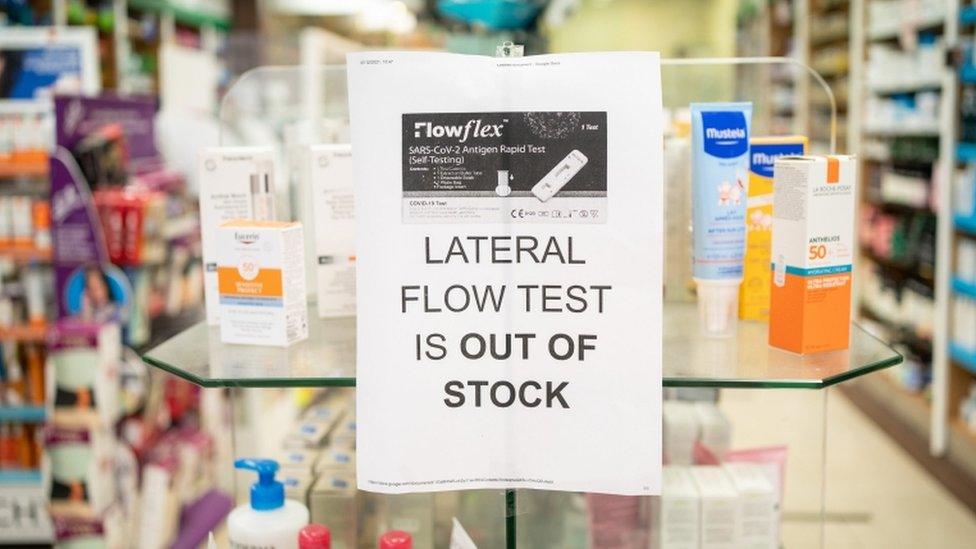
Pharmacies have been experiencing shortages of lateral flow tests
Mr Rice said pharmacies were under pressure due to staff shortages and an increased workload, and urged the public only to come forward if they needed test kids - and not to hoard them.
Some pharmacies have had to cut their opening hours because of the number of staff self-isolating.
"We've never had a situation like this before where we've had more than one pharmacist off at a time," said Liam Bradley, who owns 12 pharmacy branches across Northern Ireland.
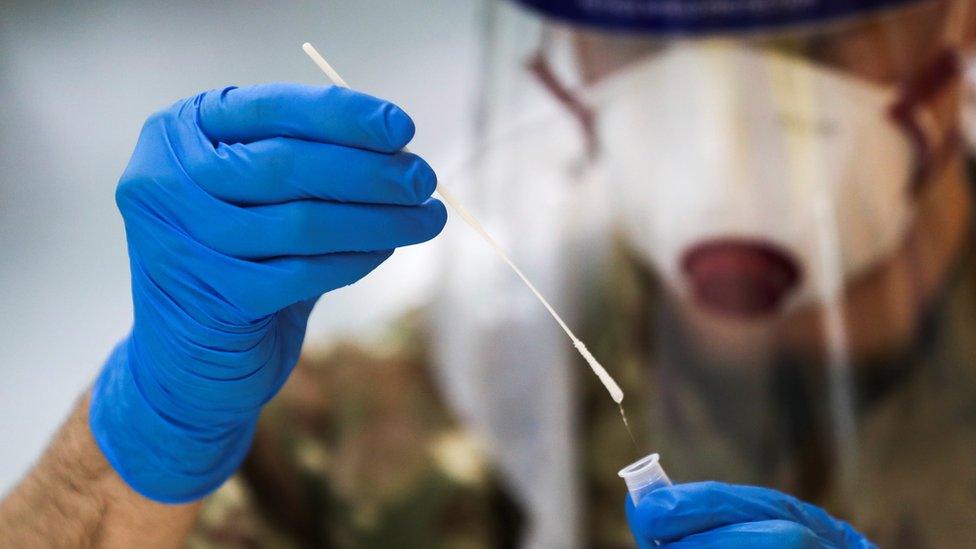
At the end of last month new Covid-19 testing measures were put in place
There had been massive demand for lateral flow tests, he said, adding that and that a "huge number" released on Monday had already gone.
Dr Frances O'Hagan, deputy chair of the British Medical Association in Northern Ireland, said the situation had improved after problems over the Christmas holidays.
"There are adequate supplies of lateral flows and they are getting out to the chemists now after the holiday period and should be available quite readily," she told Radio Ulster's Talkback programme.
Nurses 'exhausted and demoralised'
The health service is also under acute pressure because of staff not being able to work.
On 4 January, the Belfast Trust - Northern Ireland's biggest health trust - had about 14% of its total workforce absent, partly as a result of Covid.
Covid 19: Ambulance service chief speaks of pressures on services
The Northern Ireland Ambulance Service (NIAS) said about a quarter of its staff were currently unable to work due to Covid-related absences and other reasons.
Chief executive Michael Bloomfield said the pressures were the worst they had been during the pandemic.
He warned increased response times, even for the most serious calls, meant people were being advised to get to hospital by other means, if possible.
Dr Siobhan Quinn, who works in emergency medicine in Belfast's Royal Victoria Hospital, said there were a significant number of doctors and nurses off sick, leaving vacancies on all rotas.
ICU nurse Amanda Smyth said nurses were "already exhausted and demoralised because they've had to deal with so much since the beginning of the pandemic".
No major changes in Republic
Despite seven of Northern Ireland's hospitals being over capacity on Wednesday, the chairman of the British Medical Association in NI said Omicron did not seem to be as bad as the Delta variant in terms of admissions to hospital.
"The biggest crisis we will have over the coming months is staff shortages," said Dr Tom Black.
Meanwhile, in the Republic of Ireland, Taoiseach (Irish Prime Minister) Micheál Martin said he did not expect major changes to coronavirus restrictions this week.
He was speaking following a meeting of the Irish cabinet and ahead of a meeting of the National Public Health Emergency Team (NPHET) on Thursday.
The cabinet has agreed to travel rules that mean vaccinated passengers will no longer be required to have a negative Covid-19 test when arriving in Ireland.
Unvaccinated travellers will still be required to show a negative PCR test taken 72 hours before arrival.

Shop closures 'a nightmare'
by Clodagh Rice, BBC News NI business correspondent
Some businesses in Northern Ireland have been forced to close because of staff absences due to positive Covid cases and staff self-isolating.
At Bethany Fruit Market in east Belfast, customers lined the street the day before Christmas Eve, but then one member of staff tested positive and the shop had to shut.
Owner Phillip Coulter said he was devastated.
"We work with fresh produce that could go off very quickly so we would've been in a good bit of trouble if we weren't able to open," he said.
"All of our staff were out as it's quite a small shop, with one positive Covid test which was a bit of a nightmare."
The impact was also felt by the restaurants and bars that the market stock, and the farmers who supply their produce.
With some help from friends, family and farmers, they were able to adapt and open a click-and-collect service.
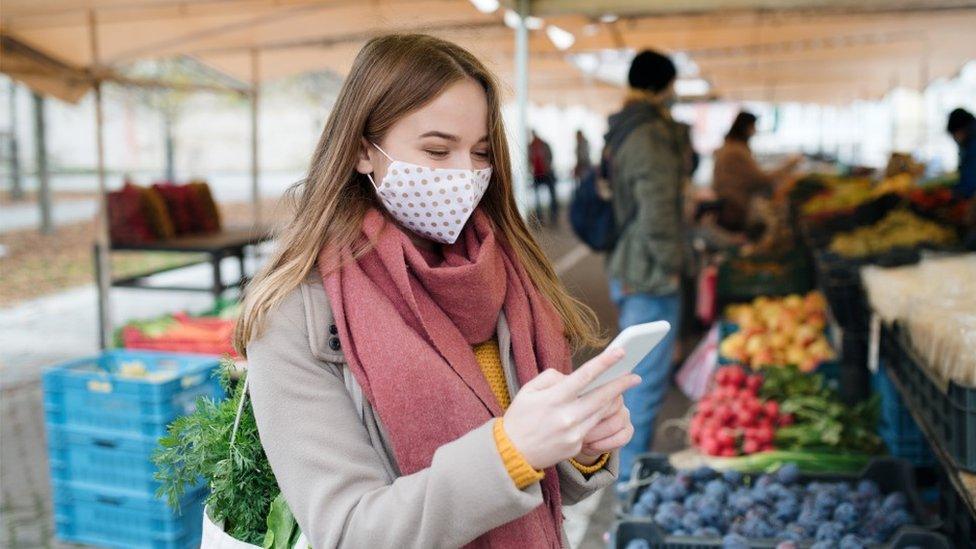
Many businesses have had to adapt to click-and-collect services in order to continue to trade through the Omicron surge
Mr Coulter said: "We managed to get four people to come in here on Christmas Eve and we set up tables outside the shop and people could pre-order online."
The staffing issues come as Translink announced a reduced timetable from 10 January, as part of a contingency plan for increasing levels of staff absence and in response to reduced passenger numbers.
The revised timetables would prioritise school and peak time services safely, said Translink's director of service operations, Ian Campbell.

OMICRON SURGE: Variant spreading at exceptional pace
SELF-ISOLATION: You test positive - what next?
COVID PASSPORTS: How to get one and how to use one

- Published31 December 2021
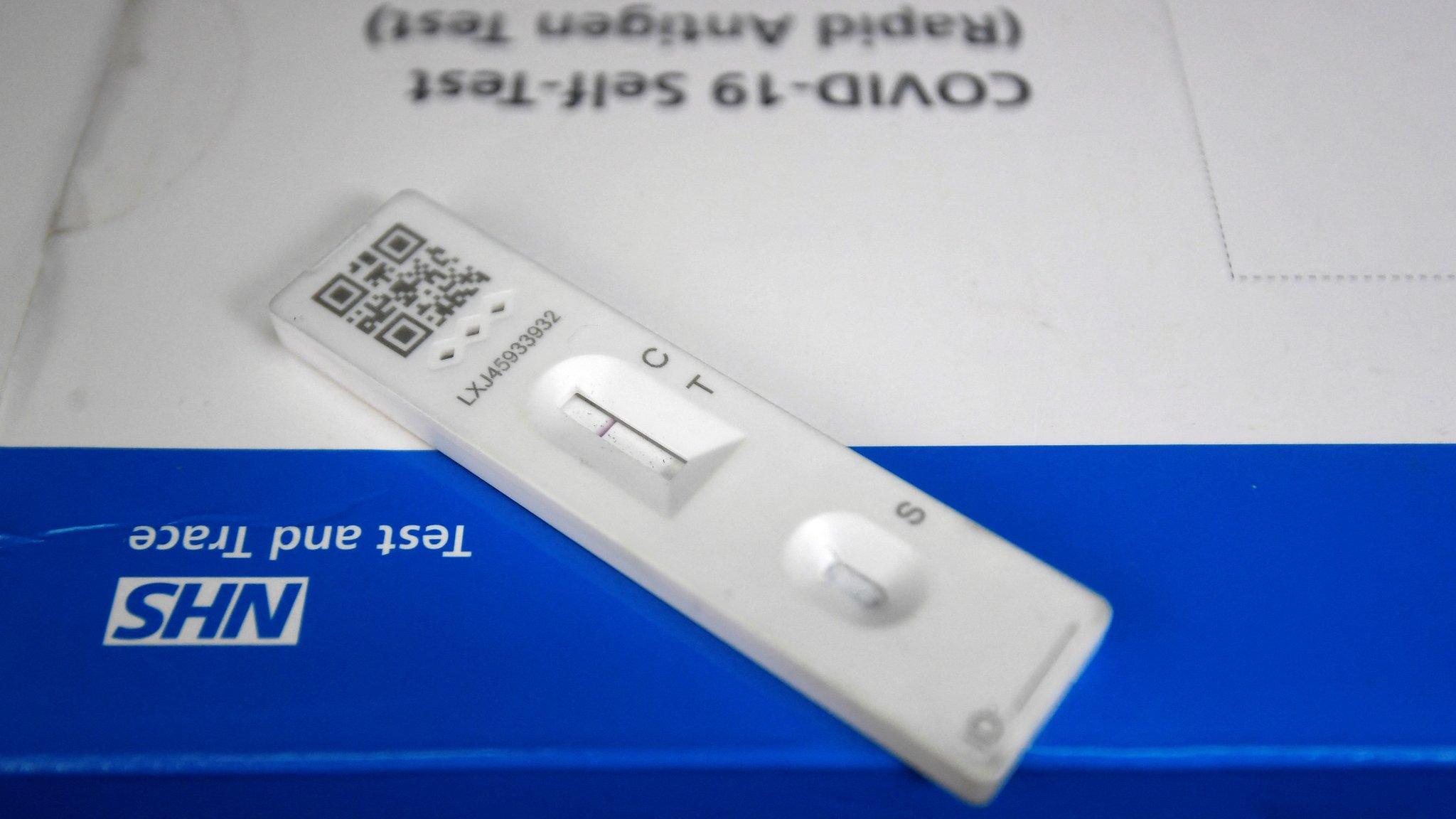
- Published5 January 2022
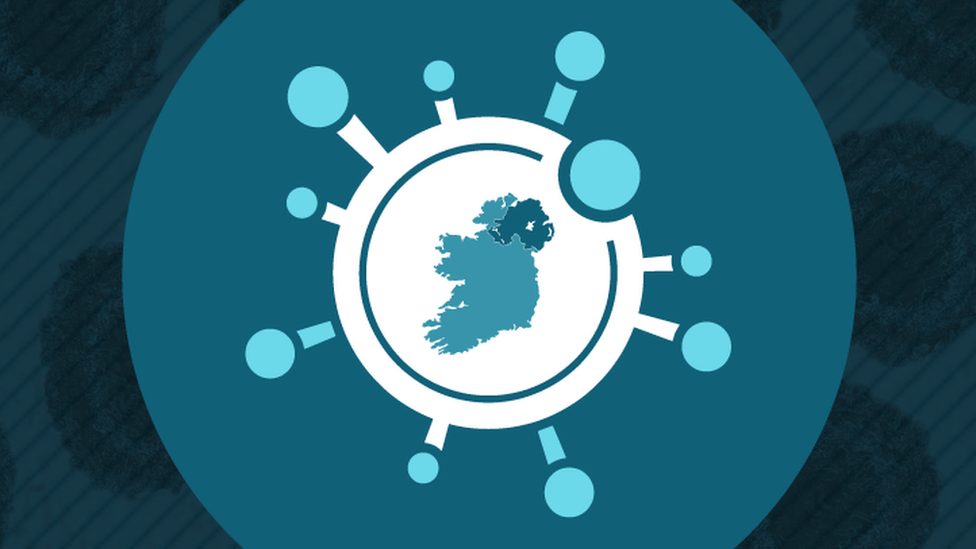
- Published4 January 2022
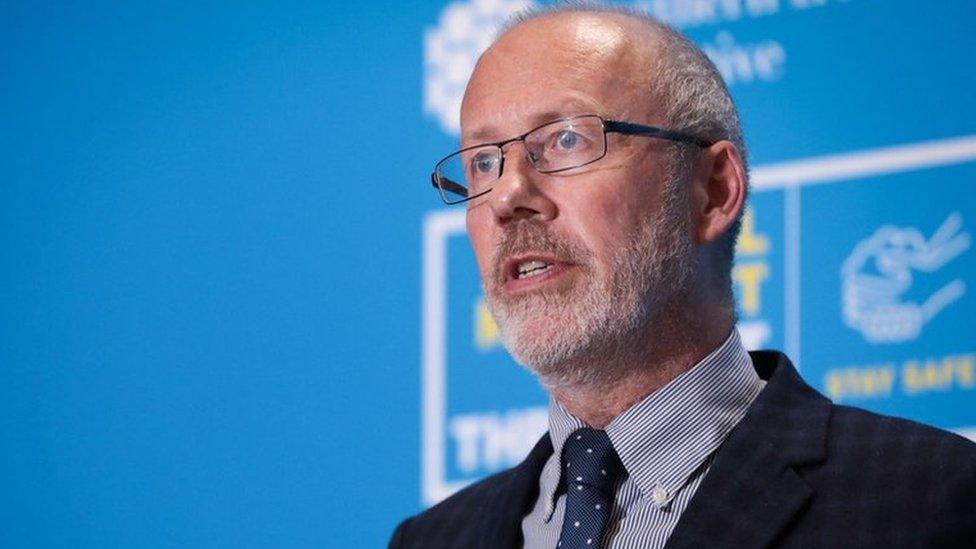
- Published4 January 2022

- Published2 January 2022
